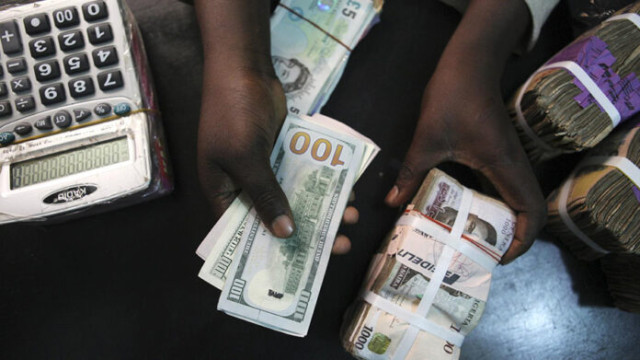The Central Bank of Nigeria has said that Nigeria’s Letter of Credit payments in the first seven months of 2024 have dropped by 57.04 per cent to $391.91m compared to $912.35m in the same period of 2023.
This is according to the weekly International Payments Data provided by the Central Bank of Nigeria on its website.
A Letter of Credit is a mode of payment used for the importation of visible goods.
It is a written undertaking given by bank (issuing bank) at the request of its customer in which the bank promises in writing to pay the exporter a certain sum within a certain time frame in return for goods, as long as the customer provides the bank with the proper paperwork.
The country's LCs payment declined by approximately $520.44m during the period under review, which some analysts attribute to factors such as the exit of multinational companies, soaring customs duties, and the unstable foreign exchange market, which hindered Nigeria's foreign trade.
An analysis of the CBN data revealed that the highest LC payments this year were recorded in February at $102.59m, followed by July at $79.65m and $58.33m in January.
In March, LC payments stood at $43.53m compared to $269m in the same month in 2023, rose to $54.02m in April 2024 and dropped to $21.48m in May before increasing to $32.26m in June.
The Managing Director of Arthur Steven Asset Management Limited, Tunde Amolegbe, stated that the decline in the trend was expected due to the unstable exchange rate, high customs clearing charges, and the exit of major international companies and the closure of other manufacturing in the country.
However, he added that the situation might improve slightly due to the recent tax waivers for the importation of some essential food products.
"Stability in the foreign exchange market, lower interest rates, and a harmonized tax regime could also help improve the situation," he said.
According to Bloomberg, the naira has fallen by about 70 per cent since May 2023 when President Bola Tinubu took office following the devaluation of the currency.
It said, "Several attempts by the Central Bank of Nigeria to boost liquidity have yet to yield significant results."
The Director of Research and Strategy at Chapel Hill Denham, Tajudeen Ibrahim, stated that Nigerian businesses are paying down on their Letters of Credit, indicating an improvement in dollar liquidity in the Nigerian financial system, largely due to the Central Bank of Nigeria's policy response to the dollar shortage in the system.
"The outlook for Letters of Credit is positive as I anticipate increased US dollar liquidity in the economy and believe Nigerian companies will further reduce their outstanding Letters of Credit", Ibrahim said.
For economy and capital market analyst, Rotimi Fakayejo, the decline recorded in the LCs payments is attributed to inconsistent foreign exchange availability.
He suggested that the reduced supply from the Central Bank of Nigeria had significantly impacted importers' ability to access foreign exchange and process Letters of Credit, affecting their businesses.
Fakayejo projected that the slowdown in LCs could have a positive overall effect on the economy, as it might lead to reduced foreign exchange usage for importation and increased local production.
He anticipated that the upcoming operations of local refineries would further improve dollar availability in the market.
He stated, "The slowdown in import receipts from banks and reduced accessibility to letters of credit may be temporary, as the high cost of imported goods and consumers' resistance could be causing a decline in import demand.
"While importers may be exploring alternative credit options, the likelihood of this is doubtful due to concerns about the poor credit ratings of local importers.
"The high cost of raising naira to finance imports and the high exchange rate are likely the main reasons for the observed slowdown in letters of credit issuances by Nigerian banks.
"This development has both positive and negative implications, as it may lead to scarcity of foreign goods, a new desire for local production, and improvements to Nigeria's balance of trade and exchange rate in the long run, but it will also continue to cause a drag on the economy and high inflationary pressure in the immediate to near term."




















